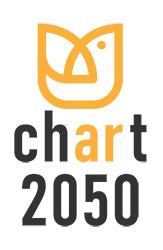
Now it’s your turn to think about what you’d like to see in the next thirty years. You may want systemic change or slight modifications of an existing order. You may wish to choose winnable victories or aim to overturn a long-entrenched injustice. You may be an idealist or an incrementalist. However you think about the future of political engagement, legislation, social change, or economic transformation, this is your chance to chart the future.
Unlike the People’s Charter, whatever emerges from chart2050 cannot be a single manifesto, written by a self-selecting group of Anglophone white men. It must be they: charters from every society, speaking to the needs of their human and animal communities, in the language and wisdom of their own traditions, and addressed to their social and political orders. Each charter can draw on the knowledge of the elders, celebrate the discoveries of the present, anticipate the world of tomorrow, and enhance the aspirations of future generations. Above all, these charters can offer pathways of resilience and survival, of the urgent need to find joy and sustain life by offering sanctuary and justice for the millions of lifeforms that are calling for our help before it’s too late.
We encourage you to reflect on how you might construct your charter or manifesto. Over the following two years, we’ll liaise with you, before we gather what has been suggested in June 2024, the bicentennial of the founding of the SPCA in England.
The progenitors of this website are committed to the notion that learning from our past helps us understand the present and allows us to shape a more just future. We believe that the political, historical, and social lessons (good and bad) of the last 200 years are valuable for the movement for animal rights and environmental justice. Learning them can help us move forward together. We hope you join us on this journey.
Questions to Consider
Every community has their own questions to consider in framing a charter or manifesto. The ten questions below are merely suggestions, and we welcome any thoughts you may have.
- Do you have a theory of change?
- What are your assumptions, and have you examined them all?
- What resources, knowledge systems, or communities are you drawing from?
- How does your charter encompass the concerns of your most resistant stakeholders?
- Who is not being heard from or included? Why?
- How do you balance the wisdom of the past with the possibilities of the future?
- How do you balance attainable goals with aspirational visions for the future?
- How do you resolve values systems that appear to contradict one another? Should you?
- Given the climate emergency, what are you willing to jettison and what is essential?
- Are you comfortable with the proportion of positive to negative rights in your charter?
Sample Charters
- Magna Carta (England, 1216)
- Bill of Rights (UK, 1689)
- Bill of Rights (USA, 1791)
- The People’s Charter (Chartists—UK, 1838)
- Declaration of the Rights of Man and Citizen of 1793 (France, 1793)
- Universal Declaration of Human Rights (United Nations, 1948)
- Charter 77 (Europe, 1977)
- Charter 88 (UK, 1988)
- Plant-Based Treaty (2020)
- Convention on Animal Protection (2021)
- One Health (Phoenix Zones Initiative—USA, 2021)
- Animals’ Manifesto: Preventing COVID-X (World Federation for Animals—International, 2021)
